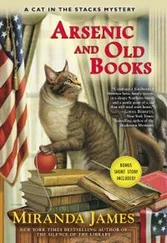George Fitch - Comfort Found in Good Old Books
Здесь есть возможность читать онлайн «George Fitch - Comfort Found in Good Old Books» — ознакомительный отрывок электронной книги совершенно бесплатно, а после прочтения отрывка купить полную версию. В некоторых случаях можно слушать аудио, скачать через торрент в формате fb2 и присутствует краткое содержание. Жанр: foreign_antique, foreign_prose, на английском языке. Описание произведения, (предисловие) а так же отзывы посетителей доступны на портале библиотеки ЛибКат.
- Название:Comfort Found in Good Old Books
- Автор:
- Жанр:
- Год:неизвестен
- ISBN:нет данных
- Рейтинг книги:4 / 5. Голосов: 1
-
Избранное:Добавить в избранное
- Отзывы:
-
Ваша оценка:
- 80
- 1
- 2
- 3
- 4
- 5
Comfort Found in Good Old Books: краткое содержание, описание и аннотация
Предлагаем к чтению аннотацию, описание, краткое содержание или предисловие (зависит от того, что написал сам автор книги «Comfort Found in Good Old Books»). Если вы не нашли необходимую информацию о книге — напишите в комментариях, мы постараемся отыскать её.
Comfort Found in Good Old Books — читать онлайн ознакомительный отрывок
Ниже представлен текст книги, разбитый по страницам. Система сохранения места последней прочитанной страницы, позволяет с удобством читать онлайн бесплатно книгу «Comfort Found in Good Old Books», без необходимости каждый раз заново искать на чём Вы остановились. Поставьте закладку, и сможете в любой момент перейти на страницу, на которой закончили чтение.
Интервал:
Закладка:
This close study of versification shows that Love's Labor's Lost was probably Shakespeare's first play, followed by The Comedy of Errors and by several historical plays. One year after his first rollicking comedy appeared he produced Romeo and Juliet , but this great drama of young love was revised carefully six years later and put into the form that we know. Three years after his start he produced Midsummer Night's Dream and The Merchant of Venice , and followed these with his greatest comedies, Much Ado About Nothing , Twelfth Night and As You Like It , the latter the comedy which appeals most strongly to modern readers and modern audiences.
Then came a period in which Shakespeare's world was somber, and his creative genius found expression in the great tragedies — Julius Cæsar , Hamlet , Othello , King Lear , Macbeth and Antony and Cleopatra . And finally we have the closing years of production, in which he wrote three fine plays — The Tempest , Cymbeline and The Winter's Tale .
According to the best authorities, Shakespeare began writing plays in 1590 and he ended early in 1613. Into these twenty-three years he crowded greater intellectual activity than any other man ever showed in the same space of time. Probably Sir Walter Scott, laboring like a galley slave at the oar to pay off the huge debt rolled up by the reckless Ballantyne, comes next in creative literary power to Shakespeare; but Scott's work was in prose and was far easier of production.
Shakespeare, like all writers of his day, took his materials from all sources and never scrupled to borrow plots from old or contemporary authors. But he so transmuted his materials by the alchemy of genius that one would never recognize the originals from his finished version. And he put into his great plays such a wealth of material drawn from real life that one goes to them for comfort and sympathy in affliction as he goes to the great books of the Bible. In a single play, as in Hamlet , the whole round of human life and passions is reviewed. Whatever may be his woe or his disappointment, no one goes to Hamlet without getting some response to his grief or his despair.
To give a list of the plays of Shakespeare which one should read is very difficult, because one reader prefers this and another that, and each can give good reasons for his liking. What I shall try to do here is to indicate certain plays which, if carefully read several times, will make you master of Shakespeare's art and will prepare you for wider reading in this great storehouse of human nature. Romeo and Juliet , a tragedy of young, impulsive love, represents the fine flower of Shakespeare's young imagination, before it had been clouded by sorrow. The verse betrays some of the defects of his early style, but it is rich in beauty and passion. The plot is one of the best, and this, with the opportunity for striking stage effects and brilliant costumes, has made it the most popular of all Shakespeare's plays. The characters are all sharply drawn and the swift unfolding of the plot represents the height of dramatic skill. Next to this, one should read The Merchant of Venice . Shylock is one of the great characters in Shakespeare's gallery, a pathetic, lonely figure, barred out from all close association with his fellows in trade by evil traits, that finally drive him to ruin. Then take up a comedy like As You Like It , as restful to the senses as fine music, and filled with verse as tuneful and as varied as the singing of a great artist.
By this reading you will be prepared for the supreme tragedies – each a masterpiece without a superior in any literature. These are Hamlet , Othello , King Lear , Julius Cæsar , Macbeth and Antony and Cleopatra . In no other six works in any language can one find such range of thought, such splendor of verse, such soundings of the great sea of human passions – love, jealousy, ambition, hate, remorse, fear and shame. Each typifies some overmastering passion, but Hamlet stands above all as a study of a splendid mind, swayed by every wind of impulse, noble in defeat and pathetic in the final ruin of hope and love, largely due to lack of courage and decision of character. Take it all in all, Hamlet represents the finest creative work of any modern author. This play is packed with bitter experience of life, cast in verse that is immortal in its beauty and melody.
Macbeth represents ambition, linked with superstition and weakness of will; the fruit is an evil brood – remorse struggles with desire for power, affection is torn by the malign influence of guilt, as seen in the unhinging of Lady Macbeth's mind. No one should miss the opportunity to see a great actor or a great actress in Macbeth – it is a revelation of the deeps of human tragedy. King Lear is the tragedy of old age, the same tragedy that Balzac drew in Le Pere Goriot , save that Lear becomes bitter, and after weathering the storm of madness, wreaks vengeance on his unnatural daughters. Old Goriot, one of the most pathetic figures in all fiction, goes to his grave trying to convince the world that his heartless girls really love him.
The real hero of Julius Cæsar is Brutus, done to death by men of lesser mold and coarser natures, who take advantage of his lack of practical sense and knowledge of human nature. This play is seldom put on the stage in recent years, but it is always a treat to follow it when depicted by good actors. Othello is the tragedy of jealousy working upon the mind of a simple and noble nature, which is quick to accept the evil hints of Iago because of its very lack of knowledge of women. Iago is the greatest type of pure villainy in all literature, far more vicious than Goethe's Mephistopheles, because he wreaks his power over others largely from a satanic delight in showing his skill and resources in evil. As a play Othello is the most perfectly constructed of Shakespeare's works. Finally in Antony and Cleopatra Shakespeare shows the disintegrating force of guilty love, which does not revolt even when the Egyptian Queen ruins her lover's cause by unspeakable cowardice. Cleopatra is the great siren of literature, and the picture of her charms is fine verse.
And here let me advise the hearing of good actors in Shakespeare as a means of culture. All the great Shakespearean actors are gone, but Mantell remains, and he, though not equal to Booth, is, to my mind, far more convincing than Irving. Mantell's Lear is the essence of great acting – something to recall with rare pleasure. Edwin Booth I probably saw in Hamlet a score of times in twice that many years, but never did I see him without getting some new light on the melancholy Dane. Even on successive nights Booth was never just the same, as his mood tinged his acting. His sonorous voice, his perfect enunciation, his graceful gestures, above all his striking face, alive with the light of genius – these are memories it is a delight to recall.
To develop appreciation of Shakespeare I would advise reading the plays aloud. In no other way will you be able to savor the beauty and the melody of the blank verse. It was my good fortune while an undergraduate at Cornell University to be associated for four years with Professor Hiram Corson, then head of the department of English literature. Corson believed in arousing interest in Shakespeare by reading extracts from the best plays, with running comment on the passages that best illustrated the poet's command of all the resources of blank verse. His voice was like a fine organ, wonderfully developed to express every emotion, and I can recall after nearly forty years as though it were but yesterday the thrilling effect of these readings. No actor on the stage, with the single exception of Edwin Booth, equaled Corson in beauty of voice or in power of expression.
Читать дальшеИнтервал:
Закладка:
Похожие книги на «Comfort Found in Good Old Books»
Представляем Вашему вниманию похожие книги на «Comfort Found in Good Old Books» списком для выбора. Мы отобрали схожую по названию и смыслу литературу в надежде предоставить читателям больше вариантов отыскать новые, интересные, ещё непрочитанные произведения.
Обсуждение, отзывы о книге «Comfort Found in Good Old Books» и просто собственные мнения читателей. Оставьте ваши комментарии, напишите, что Вы думаете о произведении, его смысле или главных героях. Укажите что конкретно понравилось, а что нет, и почему Вы так считаете.












